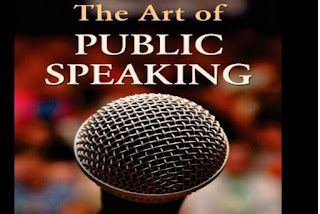Making Public Speaking Easier.
A lot of people hate giving presentations in front of an audience, whether it is just one person or an entire Mongolian horde. Unfortunately for research scientists, public speaking is part of the job and can affect how successful you are at getting your ideas heard, advancing your career and receiving more funding.
Here are some top tips for making public speaking easier:
Know your audience
Scientists often have to give presentations to a variety of people; from school children to the public, undergraduates and other experts in their field. Ensure that the content, language, tone, body language is appropriate for the audience.
Furthermore, try to understand why the audience is listening. Ask: “what will I gain from listening to this talk?” as if you were in the audience yourself. Be clear about your goal and what the audience should o btain by attending. Additionally, establish your credibility. Tell your audience why they should listen to you.
Conquer your fear
Easier said than done, but understanding how your nerves affect your ability to speak publicly is a good start. Knowing what might happen will help to calm your nerves and carry on if they start.
Firstly, the more prepared you are, the better and less nervous you will be and the better you will be able to deal with any mishaps.
Do not drink caffeine beforehand it will heighten your anxiety. But do take water in case you get a dry mouth.
Eat something beforehand, a low sugar level won’t help to dispel any nervous thoughts and will also affect your concentration levels.
Remember that the audience is not there to see you. They are much more interested in what you have to say. They also have no interest in you failing; they are your friends not your enemies. Remember that you are speaking as a service to your attendees, this helps focus less on you and more on the content.
Don’t tell the audience you are nervous. Nearly everyone suffers from some anxiety about public speaking; it is rarely as obvious from the outside as it feels.
If necessary, use breathing and relaxation techniques before you begin to help settle any last minute jitters.
Try to enjoy yourself (or at least look like it!)
If you look bored, then the audience will think you are bored. And if you’re bored by the topic, then why should anyone listening be interested? When you come out, have a smile on your face, make it seem like your happy and thankful to be there (even if you’d rather be in bed watching Netflix). If you feel confident enough to do so, add a little humour (as long as it’s appropriate). This will help you and your audience relax, and break the ice if the room is feeling a little tense or unfriendly.
Learn from your mistakes (and successes)
Every time you give a presentation, take some time afterwards to think about what worked and what failed. If it went well, consider what made it go well. If it went badly, analyse where and how it went wrong so that next time you can change your strategy and ensure the same thing doesn’t happen again.
Embrace the challenge
Public speaking is part of the life of a research scientist, and you should take every possible opportunity to advocate your work. What is the point of making scientific discoveries (big or small) if no one knows about them?
The best way to deal with the (sometimes unfortunate) need to speak publicly is to embrace it, realise how it will help you and your audience, and enjoy the conversation that it sparks.


Comments
Post a Comment